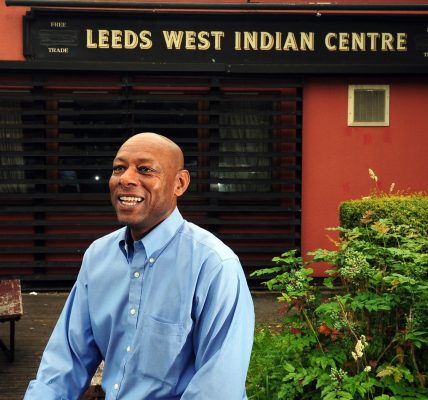Why Conservative MP Matthew Offord was wrong to try and stop the BBC airing Alexei Sayle on Desert Island Discs – Anthony Clavane
Why Conservative MP Matthew Offord was wrong to try and stop the BBC airing Alexei Sayle on Desert Island Discs – Anthony Clavane
Recently, I have been getting a bit weepy about things. It must be my advancing age. Or the gradual release from lockdown. Or the UK’s failure to secure any points at the Eurovision Song Contest.
Or, perhaps, the long-awaited arrival of Friends: The Reunion.
Whatever the reason, I have found it particularly hard to listen to Desert Island Discs without a box of tissues by my side.
I have turned to the iconic Radio 4 show for comfort most of my adult life, but I can’t remember it moving me to tears so easily and so regularly.
First it was football legend Ian Wright telling presenter Lauren Laverne about the violence he faced as a youngster. Then the brilliant Billie Piper movingly recalled her loneliness when she shot to fame as a 15-year-old pop star.
And last Sunday morning it was the turn of comedian Alexei Sayle to make me blub. Hearing him choke up whilst talking about his mother’s funeral was enough to set me off.
The abrasive, edgy, razor-sharp iconoclast is not noted for his sentimentality.
I have followed his career ever since he burst on to the alternative comedy scene in 1979 and he has consistently caused me to hoot with laughter.
Whether it be starring in The Young Ones, writing hilarious short stories or taking on the role of Ricky Lenin – the Russian captain of Felchester Rovers, Britain’s only communist football team – in a BBC series, he has never failed to crack me up.
Making me cry is another matter altogether.
But this is exactly what happened when, introducing folk singer Joan Baez’s recording of Joe Hill, he described how the protest song’s opening lines were changed at the funeral from “I dreamed I saw Joe Hill last night” to “I dreamed I saw Molly Sayle last night, alive as you and me.”
Strangely, Radio 4 listeners were almost denied the opportunity to hear the programme. If it had been up to Conservative MP Matthew Offord, we would never have known that the stars of The Golden Girls once ridiculed his tap dancing. Nor that his parents took him to see Sergei Eisenstein’s Alexander Nevsky at the cinema rather than rather than Bambi.
Nor his regret that, in America, he “turned into LA Alexei, a kind of really nice guy, wearing pastel-coloured polo shirts and chinos.”
Last week, Offord wrote to the BBC’s Director General Tim Davie urging him to pull the show.
The Hendon MP argued Davie should “be wary of giving a platform to anyone who is seen to be excusing antisemitism”.
In an interview given four years ago, Sayle – who, ironically, is himself Jewish – claimed that all allegations of antisemitism “amongst supporters of Jeremy Corbyn are a complete fabrication”.
This is not the same as excusing antisemitism, of course. It is pointing out, rightly or wrongly, that the issue was weaponised.
I, actually, have a problem with the way some socialists – a small minority, it has to be said – fail to take anti-Jewish hatred as seriously as they take other kinds of bigotry.
But having a problem with someone’s views is not a reason to censor them.
Instead, as the former Labour MP Ruth Smeeth insisted: “Challenge them to a debate, expose the weaknesses in their argument, demonstrate why you are right, and they are wrong.”
Smeeth, a political opponent of Sayle, was writing as chief executive of Index on Censorship, which champions free speech.
In another article this week, in The Times, she noted that the “joy of the British legal system is that we all have the absolute right to hold and articulate views which others may find objectionable as long as they don’t meet the threshold of hate speech and inciting violence”.
Sayle’s take on antisemitism may be wrong. It may even be offensive. But it is not hate speech – and it doesn’t incite violence.
The attempt to silence him is the latest example of a disturbing tendency in British politics to call for the “cancelling” of leading public figures – or even anti-establishment comedians in tight-fitting suits – just because you disagree with them, or find their views offensive.
It’s enough to make you weep.










